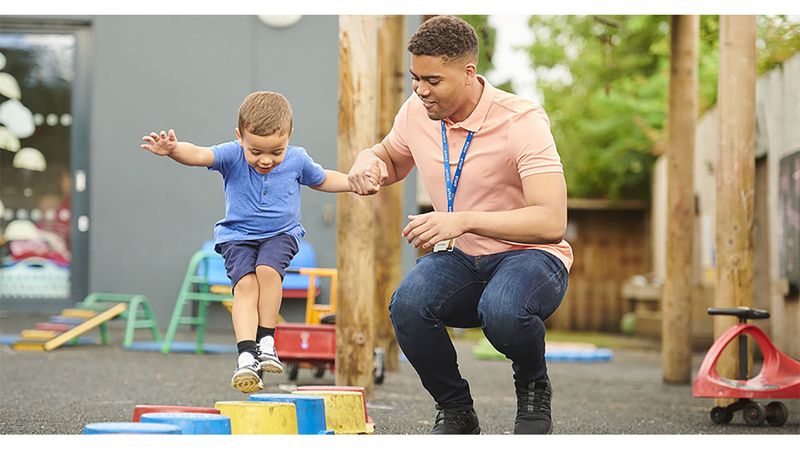Preparing for parenthood involves engaging in meaningful conversations with your partner to ensure alignment on various aspects of raising a child. Here are key topics to discuss:
1. Parenting Styles and Values

Understanding each other’s approach to parenting can prevent future conflicts. Imagine a scenario where one parent believes in strict discipline and the other in gentle guidance. This difference can lead to inconsistency. By discussing values like education, discipline, and moral teachings, couples can develop a cohesive strategy. Such alignment ensures a nurturing environment for the child, where both parents support each other’s decisions. This conversation might even spark discussions about role models or past experiences. It’s not merely about agreeing but understanding and respecting diverse perspectives.
2. Childcare Plans

Exploring childcare options early helps in making informed decisions. Whether considering daycare, hiring a nanny, or staying at home, each choice has financial and emotional implications. Discussing these options allows couples to align them with career aspirations and personal goals. For instance, a parent wanting to continue their career might explore flexible work arrangements. It’s about finding the right balance that suits both partners and ensures the child’s well-being. This discussion can also touch on backup plans and support systems.
3. Financial Planning

Raising a child is a significant financial commitment. Couples should discuss potential expenses like healthcare, education, and daily needs. Creating a budget and savings plan helps manage these costs. Imagine the peace of mind knowing that unexpected expenses won’t derail your plans. This financial dialogue is not just about numbers but understanding priorities and long-term goals. It can also include discussions on investments or insurance. Aligning on financial strategies ensures stability and security for the growing family.
4. Division of Household Responsibilities

Sharing household responsibilities prevents resentment and burnout. Discuss how tasks like cooking, cleaning, and childcare will be divided. This ensures a balanced workload, fostering a supportive environment. Imagine coming home to a clean house after a hectic day at work, knowing your partner has your back. These conversations might even reveal hidden talents or preferences. It’s more than just about chores; it’s about teamwork and mutual respect. Setting clear expectations can lead to a harmonious home life.
5. Health and Wellness

Maintaining health during and post-pregnancy is crucial. Discuss plans for exercise, nutrition, and mental well-being. Imagine a couple practicing yoga together or preparing healthy meals. Such activities strengthen the bond and ensure a healthy lifestyle. Conversations about wellness can also include mental health support and stress management. By prioritizing health, couples can better support each other and their child. This is not just about physical health; emotional and mental well-being are equally vital.
6. Religious and Cultural Practices

For many, religion and culture play a significant role in upbringing. Discussing how these aspects will influence your child’s life is essential. Imagine planning cultural celebrations or religious ceremonies together. Such discussions ensure that both partners feel represented and respected. This conversation might also include decisions about religious education or community involvement. By understanding each other’s beliefs, couples can create a harmonious environment that honors both traditions.
7. Career Goals and Work-Life Balance

Balancing careers and family life requires careful planning. Discuss potential career changes, parental leave, and work-life balance. Imagine a couple exploring flexible work schedules or remote work opportunities. Such conversations ensure that neither partner’s career is compromised. It’s about finding solutions that support professional growth while prioritizing family. These discussions might also explore aspirations and how they align with family goals. Creating a supportive environment allows both partners to thrive.
8. Conflict Resolution Strategies

Healthy communication is key to resolving conflicts. Discuss strategies for addressing disagreements constructively. Imagine a couple practicing active listening or using ‘I’ statements to express feelings. Such methods foster a supportive environment. This conversation is not about avoiding conflicts but handling them with empathy and understanding. Couples can also explore therapy or counseling as tools for maintaining harmony. By establishing conflict resolution tactics, couples can ensure a stable, loving home for their child.
9. Support Systems

Building a network of support is vital. Discuss external resources like family, friends, or community services. Imagine a couple creating a list of trusted individuals for emergencies. Such conversations ensure that help is available when needed. This might include discussing roles of grandparents or close friends. Recognizing the value of support systems can ease the transition to parenthood. It’s about creating a village that supports the child’s growth and the parents’ well-being.
10. Expectations of Parenthood

Sharing expectations and dreams of parenthood fosters understanding. Discuss hopes, fears, and potential challenges. Imagine a couple sharing childhood memories and envisioning the future. This conversation helps in aligning visions and preparing for the journey ahead. It’s about understanding each other’s perspectives and creating a shared dream. By discussing expectations, couples can navigate surprises with confidence and unity. This dialogue might even reveal unexpected aspirations or concerns.
11. Education Goals

Education is a significant aspect of a child’s growth. Discuss expectations about schooling, extracurricular activities, and learning approaches. Imagine parents envisioning a future where their child excels in academics or sports. This dialogue helps in setting realistic goals and exploring opportunities. It’s about understanding each other’s values regarding education and aligning them with the child’s needs. By planning ahead, couples can support their child’s educational journey with clarity and purpose.
12. Disciplinary Approaches

Discipline shapes a child’s behavior and character. Discuss methods like time-outs, positive reinforcement, or natural consequences. Imagine a couple debating the merits of different approaches. This conversation is about finding a strategy that aligns with both parents’ values. It’s about consistency and understanding the impact of discipline on development. By agreeing on disciplinary methods, couples can provide a stable and nurturing environment. Such discussions prevent conflicts and ensure a united front.
13. Family Traditions and Rituals

Traditions enrich a family’s identity. Discuss rituals and customs you wish to pass on. Imagine a couple planning holiday traditions or weekly family nights. These rituals create bonding opportunities and a sense of belonging. This conversation helps in blending traditions from both families or creating new ones. It’s about celebrating diversity and fostering unity. By establishing traditions, couples can create cherished memories and a strong family culture.
14. Health and Safety Standards

Ensuring health and safety is paramount. Discuss measures to childproof the home, choose safe products, and establish hygiene practices. Imagine parents examining safety equipment or researching nutritional guidelines. This conversation is about creating a secure environment for the child. It’s about understanding potential risks and taking proactive measures. By aligning on health and safety standards, couples can protect their child’s well-being with confidence and care.
15. Emotional and Mental Preparation

Emotional readiness is crucial for parenthood. Discuss feelings, fears, and mental preparedness. Imagine a couple reflecting on personal growth and emotional resilience. This conversation helps in addressing potential anxieties and building emotional strength. It’s about supporting each other’s emotional journey and recognizing vulnerabilities. By preparing emotionally, couples can face parenthood with courage and unity. Such discussions foster empathy and deepen the connection between partners.
16. Long-Term Parenting Goals

Parenting is a lifelong journey. Discuss long-term aspirations like teaching life skills or fostering independence. Imagine parents envisioning their child’s future achievements and milestones. This conversation is about setting a vision and working towards it together. It’s about understanding the values and principles that will guide the child’s growth. By setting long-term goals, couples can create a roadmap for successful parenting. Such planning ensures purposeful and intentional upbringing.

Well, hello there!
My name is Jennifer. Besides being an orthodontist, I am a mother to 3 playful boys. In this motherhood journey, I can say I will never know everything. That’s why I always strive to read a lot, and that’s why I started writing about all the smithereens I came across so that you can have everything in one place! Enjoy and stay positive; you’ve got this!

